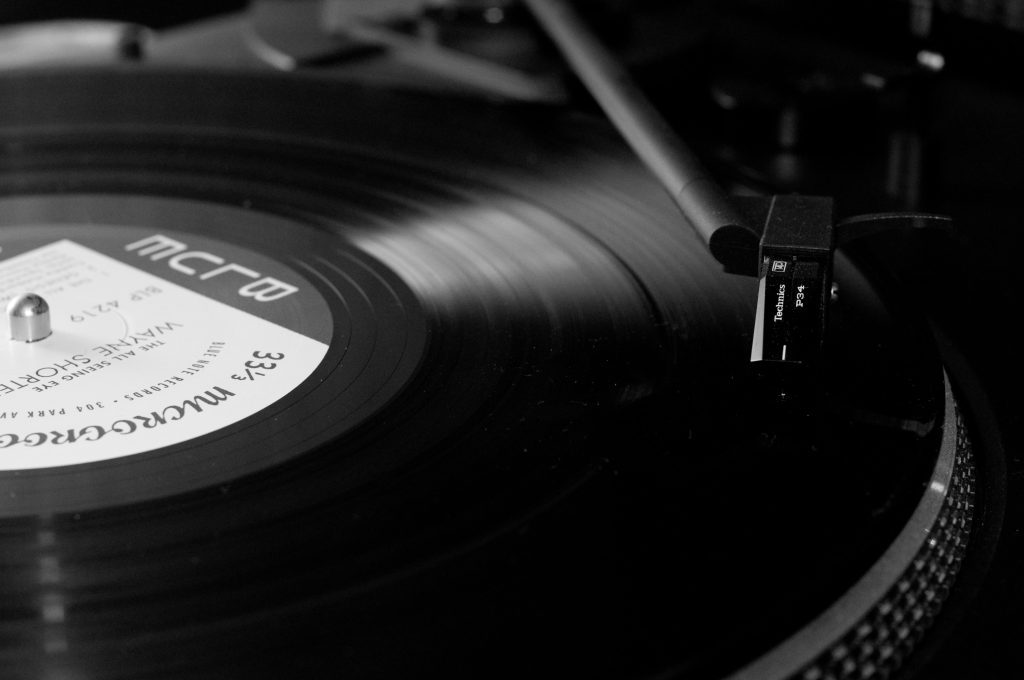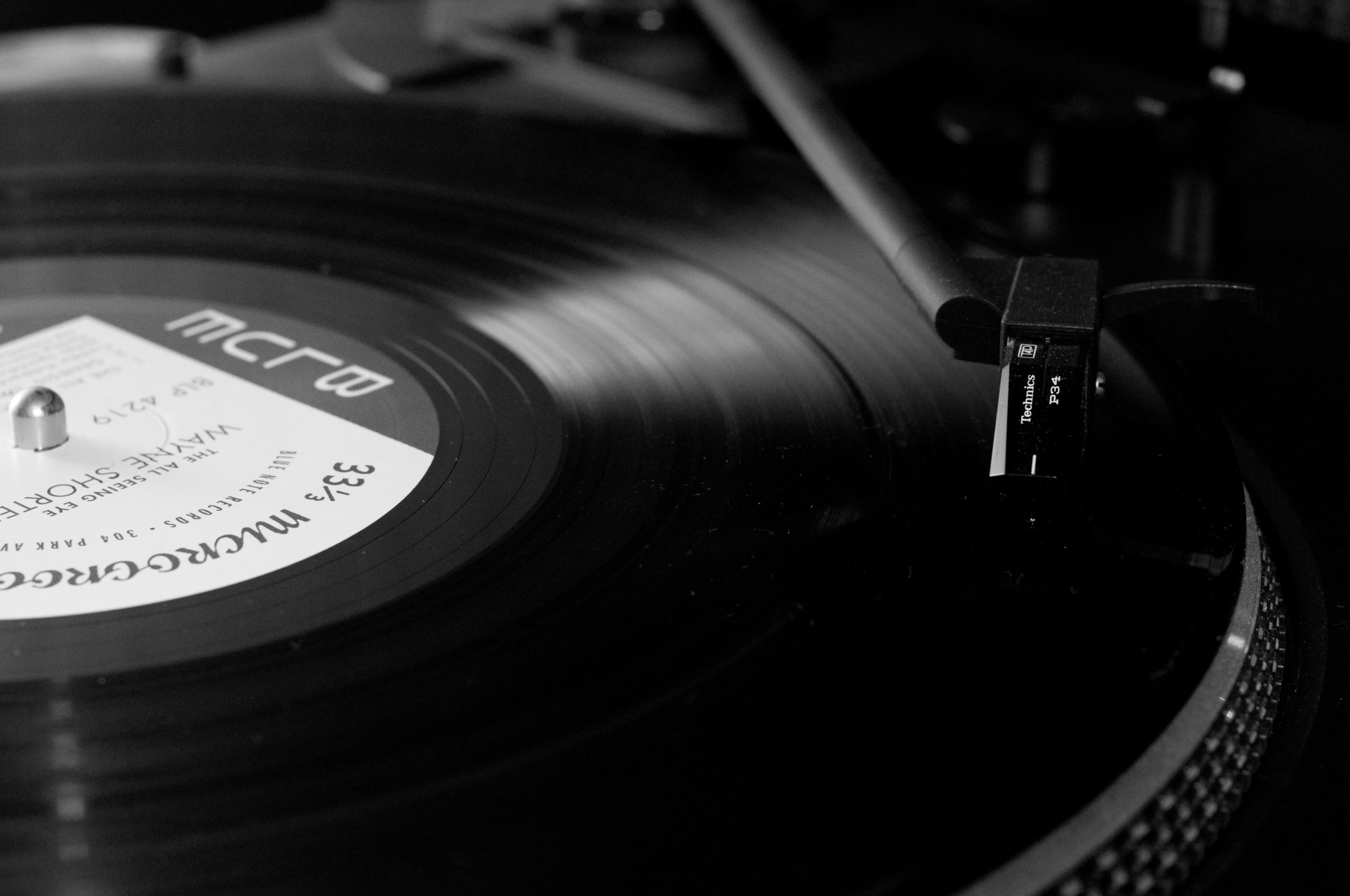
We all love our vinyls. But the only trouble with owning vinyls is a permanent sense of paranoia that every time you play them, you’re destroying them that little bit more. It doesn’t help that vinyls are now really quite expensive to buy.
Fear not! With proper care and maintenance you can keep your vinyl records in tip-top condition and enjoy them worry-free.
This is what I do:
Keep your records clean
Dust, dirt, and grime can accumulate on records over time, causing scratches and reducing sound quality. So, cleaning a vinyl record is an important step in maintaining its sound quality and prolonging its lifespan.
Here’s a simple method for cleaning your records:
- Gather materials: You’ll need a carbon fiber brush, a microfiber cloth, and a cleaning solution specifically designed for cleaning vinyl records. Avoid using water or household cleaning products, as they can damage the record.
- Brush the record: Use the carbon fiber brush to gently brush the surface of the record in a circular motion, starting from the center and working your way outwards. This will remove any loose dust and debris.
- Apply cleaning solution: Sprinkle a small amount of cleaning solution onto the record and use the microfiber cloth to gently spread it around the surface. Be sure to cover the entire record, including the label.
- Wipe the record: Use the microfiber cloth to wipe the record in a circular motion, starting from the center and working your way outwards. Be sure to remove any excess cleaning solution, as it can attract dust and dirt.
- Dry the record: Use the microfiber cloth to gently dry the record, again starting from the center and working your way outwards. Make sure the record is completely dry before returning it to its sleeve.
It’s also good practice to lightly wipe records with a soft microfiber cloth every time before playing, especially when you have a lot of dust in your environment. Don’t go overboard though!
With proper care and cleaning, your vinyl records will continue to provide you with beautiful, high-quality sound for years to come.
Store records correctly
The short version: Vinyl records should be stored vertically in a cool, dry place, away from direct sunlight and heat sources. Avoid stacking records on top of each other, as this can cause warping or bending.
In detail: Storing vinyl records correctly is essential for preserving their sound quality and prolonging their lifespan. Here are a few of the benefits of proper record storage:
- Reduced warping: Warping occurs when records are stored in a humid or hot environment, causing them to bend or warp. By storing records in a cool, dry place, you can reduce the risk of warping and keep them in good condition.
- Reduced damage: Storing records vertically rather than stacking them on top of each other can prevent damage from pressure. Additionally, by keeping records away from direct sunlight and heat sources, you can prevent fading or discoloration of the record sleeves.
- Easier access: Proper storage can help you keep your record collection organized and easily accessible. By storing records vertically, you can see the entire collection at a glance and quickly find the record you’re looking for.
- Longer lifespan: Proper storage can significantly prolong the lifespan of your records. By reducing the risk of warping, damage, and discoloration, you can ensure that your records will continue to provide you with beautiful sound quality for many years to come.
- Maintaining the value: If you are a collector, proper storage can help preserve the value of your records. Many collectors are willing to pay a premium for records that are in near-mint condition, and proper storage can help your records maintain that condition for a long time.
Proper storage is crucial for preserving the sound quality and longevity of your vinyl collection. By keeping them cool, dry, and vertical, you can reduce the risk of damage and ensure that your precious records will continue to provide you with beautiful sounds for years to come.
Use the right equipment
A high-quality turntable, tonearm, and needle are essential for maintaining the best sound quality. Make sure your equipment is properly calibrated and maintained, and replace the needle when it shows signs of wear.
These are the main things to worry about:
- Turntable: A high-quality turntable is the foundation of any good vinyl setup. Look for a turntable that has a stable platter, a sturdy tonearm, and a precise speed control to ensure the best sound quality.
- Tonearm: The tonearm is the part of the turntable that holds the needle and tracks the record. A high-quality tonearm will have minimal friction and be well-balanced to ensure accurate tracking of the record. Obviously, tonearm and turntable usually come as one unit!
- Needle: The replaceable needle is the small, pointed tip that sits in the groove of the record and converts the mechanical vibrations into electrical signals that the amplifier can amplify into sound. It is also known as a stylus. It is important to replace the needle when it shows signs of wear, as a worn needle can cause damage to all of your records!
By using high-quality equipment and making sure it is properly calibrated and maintained, you can ensure that your vinyl records will sound their best and last as long as possible. It’s also important to keep in mind that even the best equipment can’t smooth over a damaged or dirty record, so make sure to clean your records (as described above) and handle them with care before playing them (as described below!)
Handle records with care
Always hold a record by the edges and avoid touching the playing surface. When removing a record from its sleeve, hold it by the outer edge and gently slide it out. Basically, do everything you can to avoid touching the playing surface, and to avoid getting dirt or dust into the playing surface.
Don’t play dirty or damaged records
Warning! Records that are visibly damaged or dirty will only cause further damage to your turntable, stylus and needle – and this can cause knock-on damage to other records! Clean or repair the record before playing it or consider not playing it at all.
By following these tips, you can ensure that your vinyl records remain in excellent condition and they’ll continue to provide you with beautiful, rich sound for many, many years to come.
